Sudden Unexplained Death in Childhood: Parents demand answers
- Published
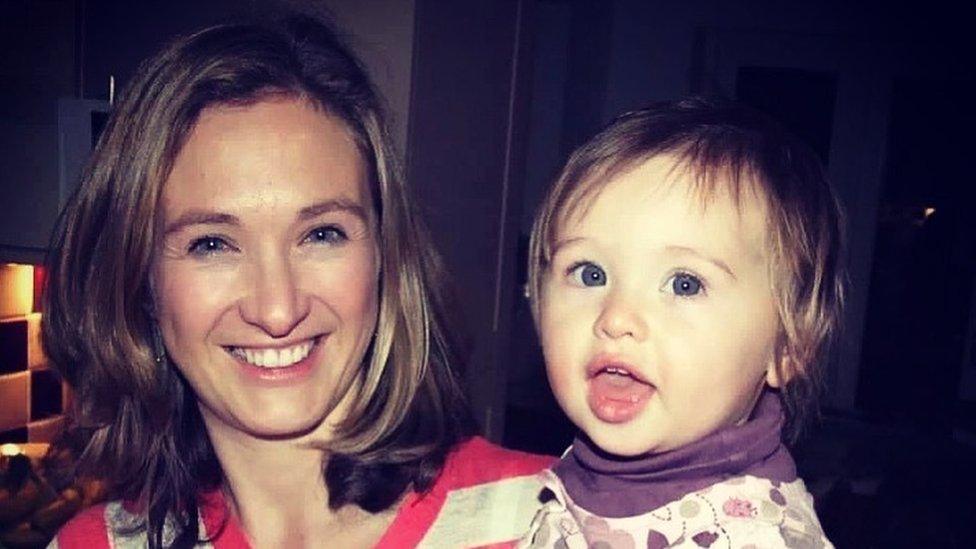
Eleanor Wroath's daughter Miranda died suddenly and without explanation
When a second-time mother put her daughter to bed, she gave her some milk, they read a bedtime story together, she kissed her goodnight and told her she was loved by mummy, as she always did.
It was a bedtime like any other for Eleanor Wroath and 15-month-old Miranda.
Ms Wroath slept through the night, undisturbed by Miranda.
As many parents of young children know, a good night's sleep is a precious thing indeed and she was grateful for the rest.
But the next day when she went to wake Miranda, there was no response.
"My beautiful baby girl was lifeless in her bed," Ms Wroath said.
"The single, most devastating and traumatic event of my life was about to unfold."
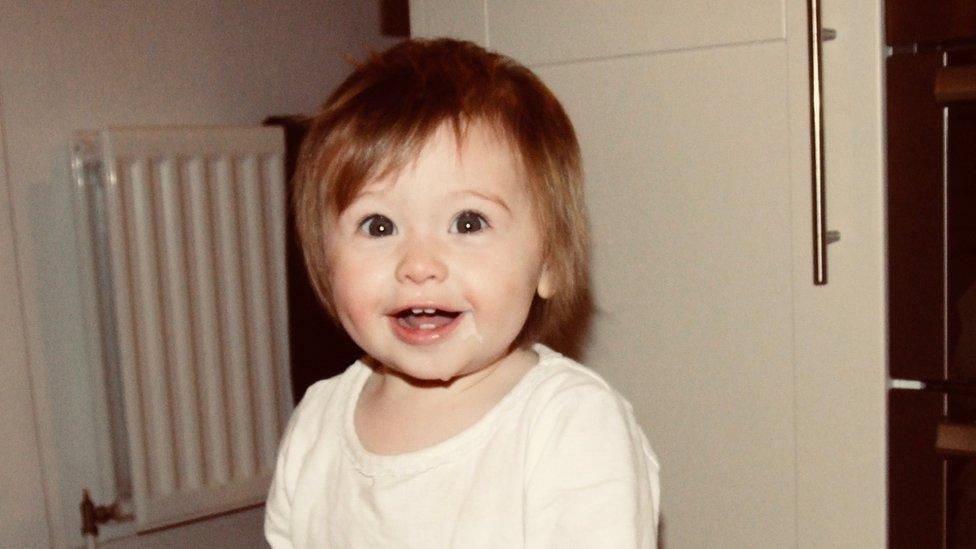
Miranda died in her sleep on 9 January 2008
Miranda was rushed to hospital on 9 January 2008, but was sadly pronounced dead.
The doctors said she had died suddenly and without explanation in her sleep.
More than 15 years later, Ms Wroath, who lives in Gloucestershire, still has no answers as to why Miranda, who was medically fit and healthy, died so young.
"It is a mystery that I will never understand," she said.

If you have been affected by the issues raised in this story help and support is available via the BBC Action Line

Sudden Unexplained Death in Childhood (SUDC) is a rare category of death in children over the age of one, in which the cause remains unknown even after thorough investigation.
"Being a tired mum, all you want is a good night's sleep, but I would have given a million nights awake to still have my baby," Ms Wroath said.
"She was my sunshine, the light of my life, her smile stays with me forever, a lovely, happy beautiful being."
Ms Wroath said the lack of research and awareness surrounding SUDC had created what appeared to be an "unsolvable mystery" around her daughter's death.
"There is a stigma that comes with SUDC, weirdly, even though it's horrific and tragic, people don't know what it is," she said.
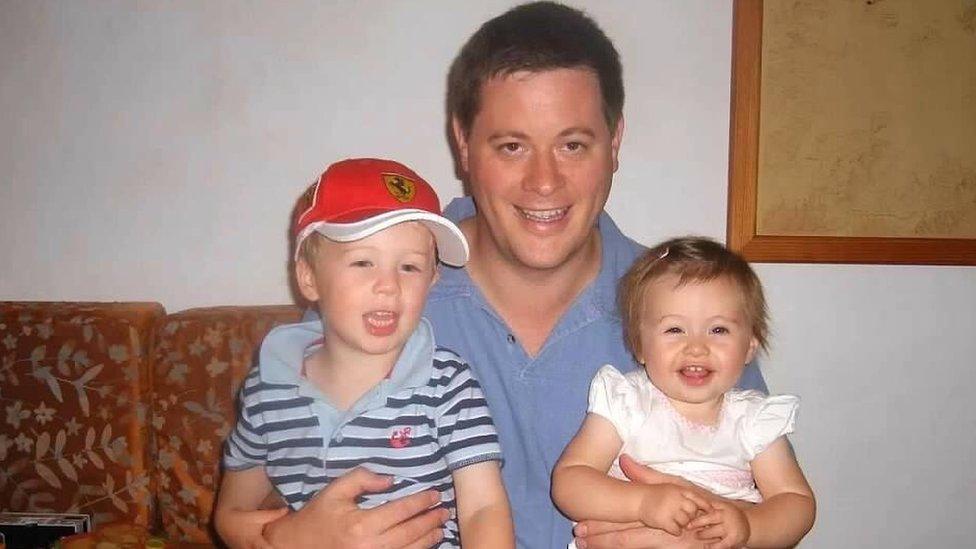
Miranda was the youngest of two children to James and Eleanor Wroath
"When somebody asks you how many children you have, you tell them what happened, they look horrified and confused, it's bewildering, but you feel an obligation to explain.
"Not knowing how your child died is hard enough already, without having to explain it.
"They look shocked, because they have never heard of SUDC before, and then that becomes a mirror of your own pain and guilt.
"And then there is that question mark of judgement, did something untoward happen, then you ask yourself that question, was it my fault?"
Ms Wroath wants answers, so that "the mystery can be unravelled" and other parents do not have to go through the same pain.

Sudden Unexplained Death in Childhood
SUDC covers children aged one and above
It is estimated that about 40 children over the age of one die suddenly every year - more than young child deaths from traffic accidents, fires or drowning
Office for National Statistics data from 2020 and 2021 shows SUDC is the fourth leading category of death in one to four-year-olds in England and Wales
About 12,000 scientific studies have been published into SIDS (sudden and unexplained infant death syndrome)- but only 50 have been published for SUDC
As with SIDS, also known as cot death, most SUDC cases occur during sleep
It is estimated about a third of SUDC cases involve children who have had febrile seizures
Source: NHS England / SUDC Charity, external

Kimberley Shepherd, a teacher from Weston-super-Mare, in Somerset, found her 11-year-old son, Liam Shepherd, dead in bed when she tried to wake him for school.
He had died suddenly and without explanation.
"He was a healthy, kind and beautiful boy," she said.
"Never knowing why your only child was taken away from you is unbearable, there are so many unanswered questions that us parents will never understand.
"But through research and awareness, we can find answers."
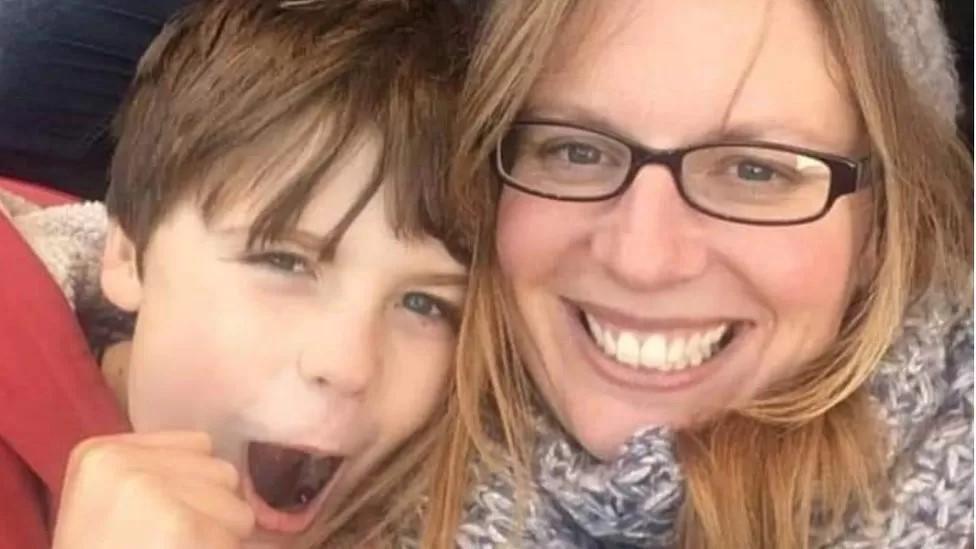
Liam was Kimberley Shepherd's only child
According to a report recently published by England's National Child Mortality Database, 19% of child deaths in England are sudden, unexpected, and remain unexplained after full investigation.
The report is a collaborative work from scholars at the University of Bristol, medical practitioners and charities such as SUDC UK.
It found that sudden and unexplained deaths were associated with particular circumstances.
Prof Peter Fleming, a lead author on the report and professor of infant health at the University of Bristol, said: "One important finding is that in the unexpected deaths of children between one and 18 there is a high incidence of a family history of convulsions.
"What this tells us is that research in this area is now a priority.
"It is crucial that we identify those factors so that support is given to make sure all families can create a safe environment for their children."
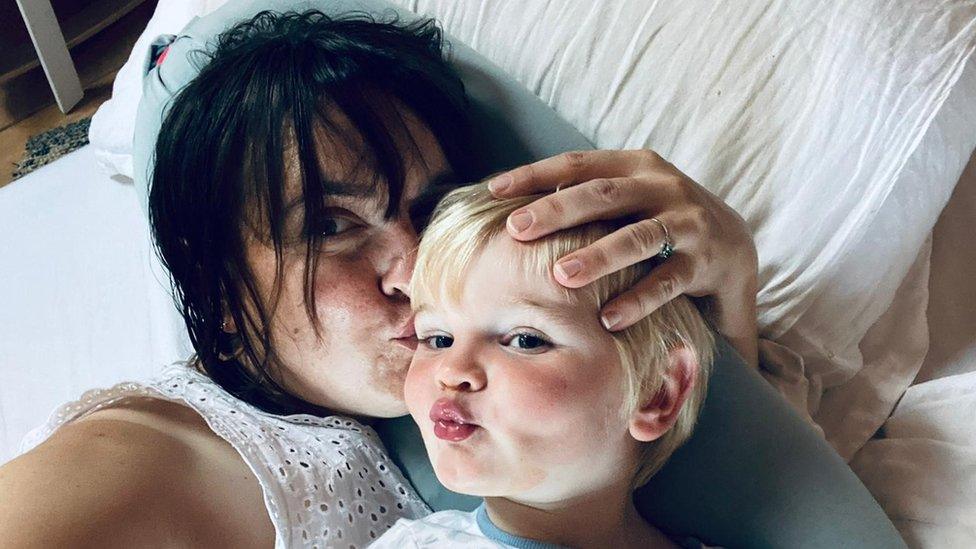
Natalie Hughes' son Jude died on 18 April 2021
When Natalie Hughes put her son Jude down for a nap, she did not know he would never wake up again.
"He seemed to be asleep slightly longer than usual, so I just tried to wake him up gently," Ms Hughes, from Cornwall, said.
"He was not responding, I knew something was wrong, I quickly called 999."
Ms Hughes moved Jude to the floor and performed CPR for about 27 minutes, but it was too late.
When the paramedics arrived they tried to resuscitate him but he was pronounced dead at the scene.
He died suddenly and without explanation at just two years and nine months old.
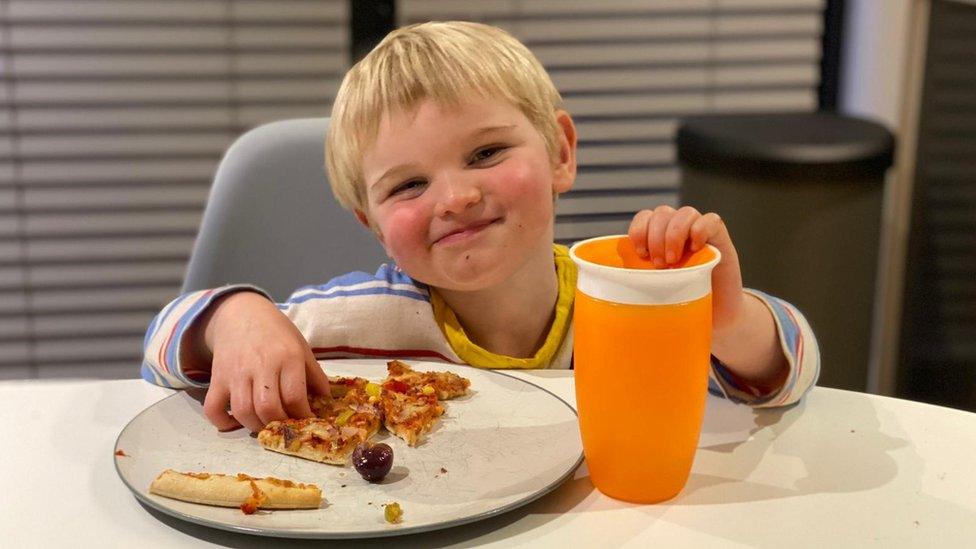
Jude had "such big emotions for a small child", Ms Hughes said
"Everyone thinks their child is special, but he really was something else.
"He had a really amazing personality, very loving, but feisty at the same time," she said.
"I felt as though he was quite misunderstood sometimes, he had such big emotions for a small child. He was trying to navigate them and was just starting to turn a corner in his development.
"He was changing, becoming more aware of himself and surroundings, but his future was snapped away from him."
'Absolute torture'
Ms Hughes fears her other two children could be at risk too, and she wants there to be a clear response for the siblings of children who die suddenly and without explanation.
"To lose your child is bad enough, but to not know why is absolute torture," she said.
"Your child dies, you don't know what it is, and no-one cares that you have to live with that and then you have another baby and you worry it's going to happen again."
Ms Hughes said there was very little information or support available when she lost Jude, thankfully the work of charity SUDC UK had helped to her to begin moving forward.
"They gave me hope that you can live alongside grief," Ms Hughes said.
SUDC UK is a registered, national charity dedicated to raising awareness, funding research and supporting families affected.
Its CEO Nikki Speed, from London, lost her child Rosie also at the age of two.
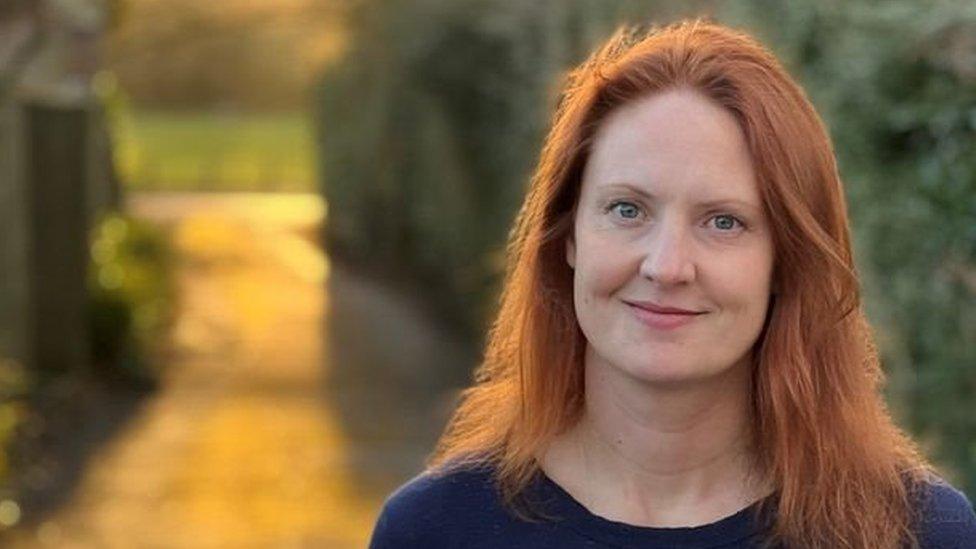
Nikki Speed said she was determined to find answers for bereaved families
"There is nothing quite like looking another parent in the eye that truly understands the impact of losing your little boy or girl so suddenly and not knowing why.
"We are determined to inspire the support needed to save other children's lives and stop SUDC.
"Through research and awareness, we will find answers."
Because of the charity's campaign, SUDC was debated in Parliament for the first time in January, led by former Chancellor Kwasi Kwarteng, who said SUDC had not had the attention it deserved.
The debate offered a glimmer of hope for bereaved parents that discussion on a national scale might be the first step towards getting the answers they deserve.
"We deserve answers as to why our children died," said Ms Wroath.
"15 years after my beautiful Miranda died, I can tell you that the pain does become less consuming, and that you can find a way to live.
"She is with me every step of the way."

Follow BBC West on Facebook, external, Twitter, external and Instagram, external. Send your story ideas to: bristol@bbc.co.uk , external
Related topics
- Published17 January 2023
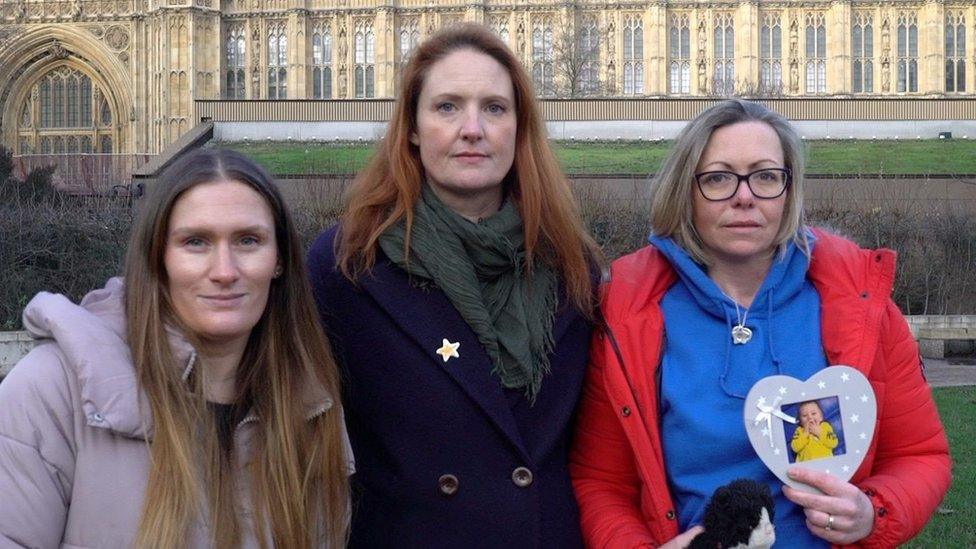
- Published15 October 2022
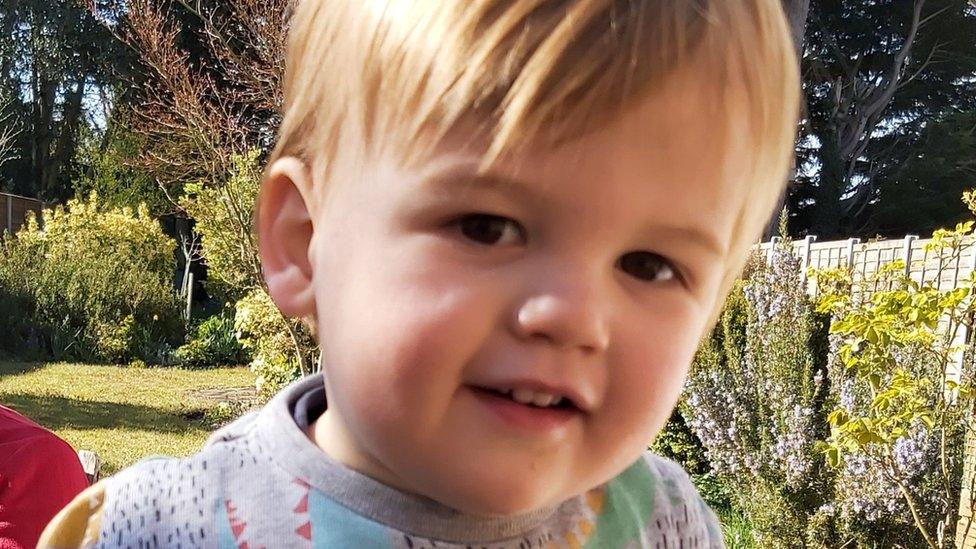
- Published8 October 2022
